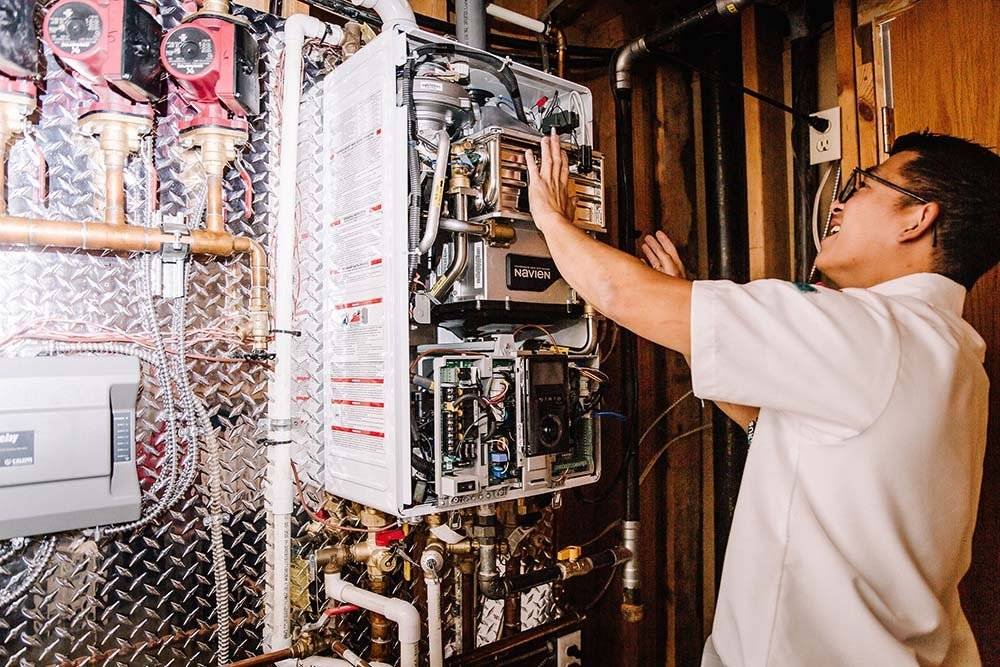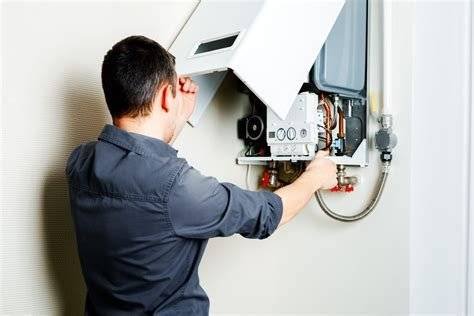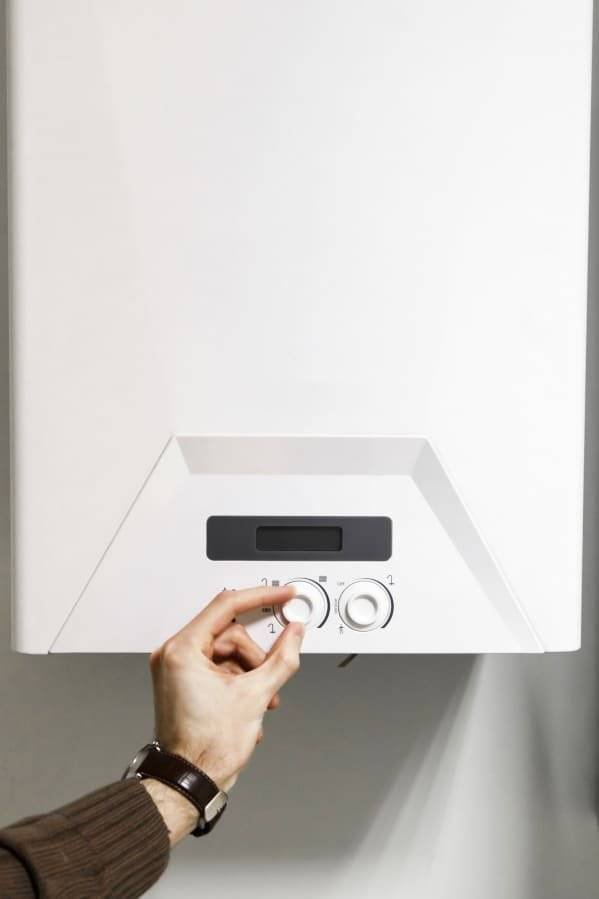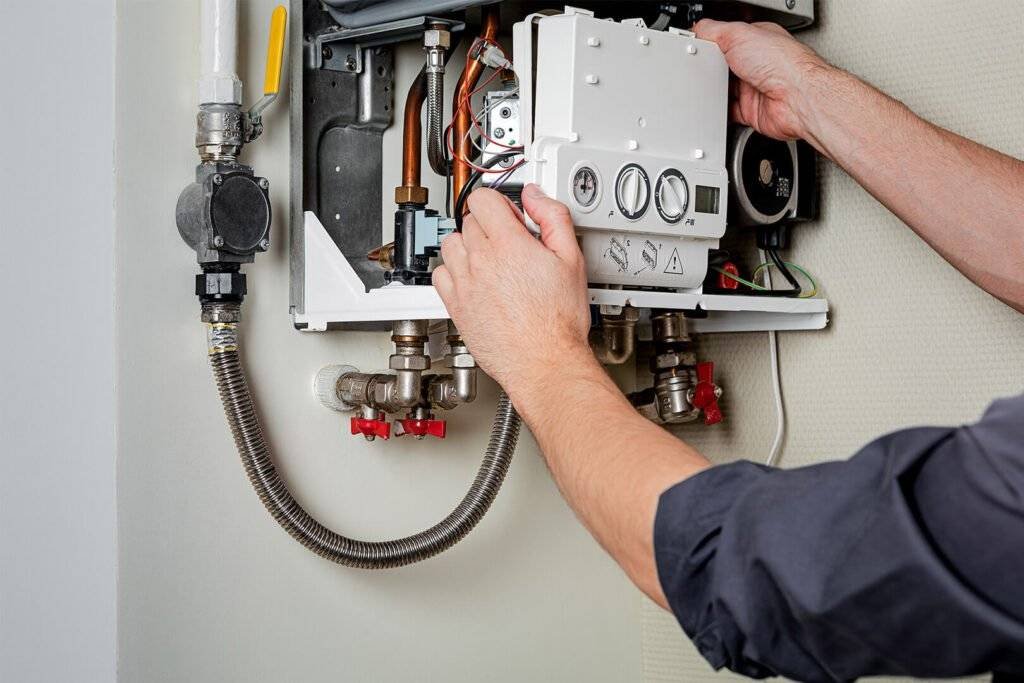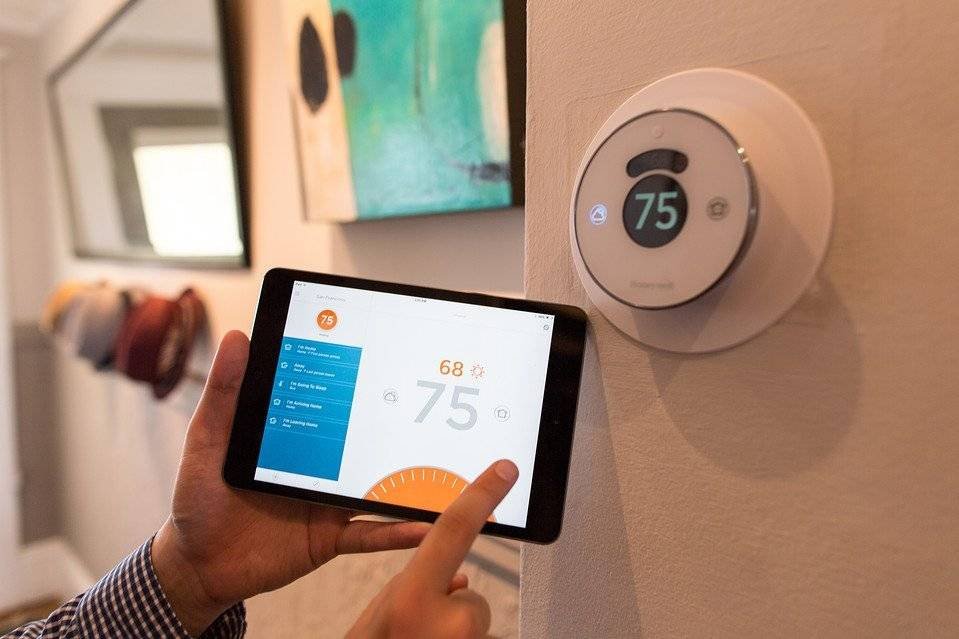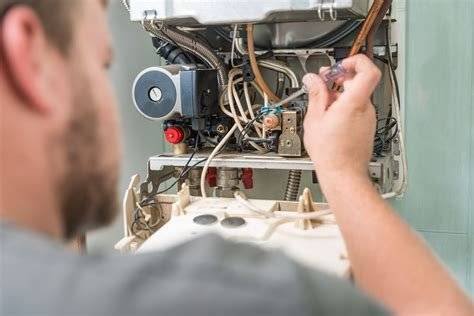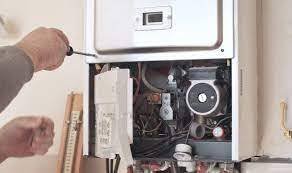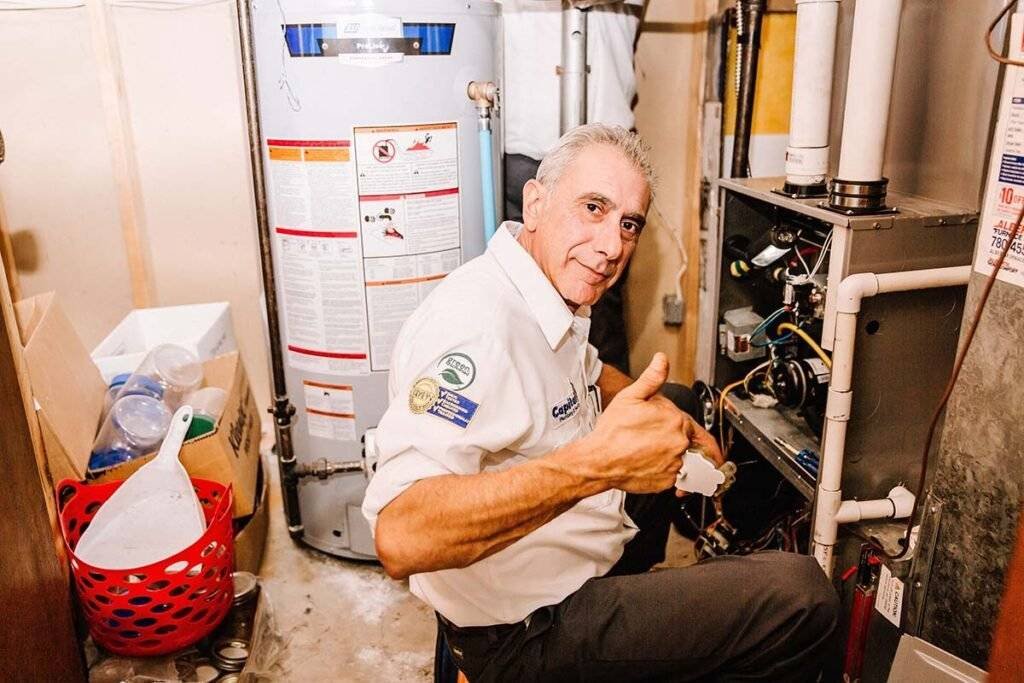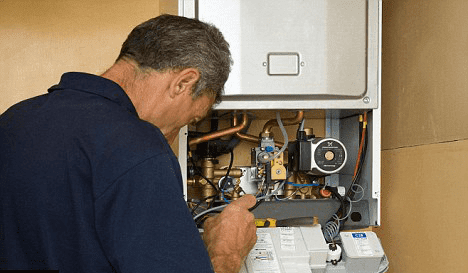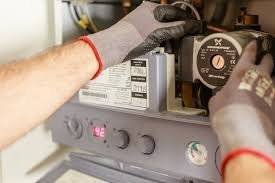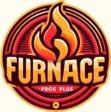Furnace Installation Edmonton - Your Trusted Heating Professionals
Furnace Pros Plus is your dependable partner for all your heating needs. With years of experience, we specialize in delivering top-notch heating solutions to keep your home warm and comfy. Our team of competent technicians dedicate themselves to offering professional heating system setup, upkeep, and repair services. We understand the significance of a correctly working heater, particularly during the chillier months. We prioritize efficiency, cost, and customer complete satisfaction in every project (huge or small). Whether you require a new heating system, a regular check-up, or emergency situation repairs, count on Furnace Pros Plus for reputable and efficient heating services that guarantee peace of mind and convenience.
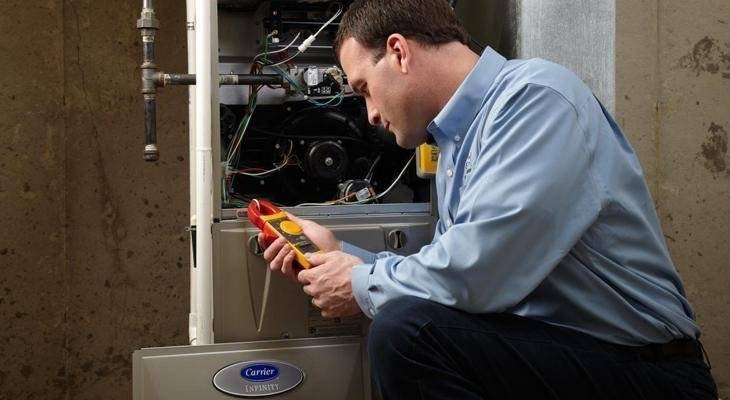
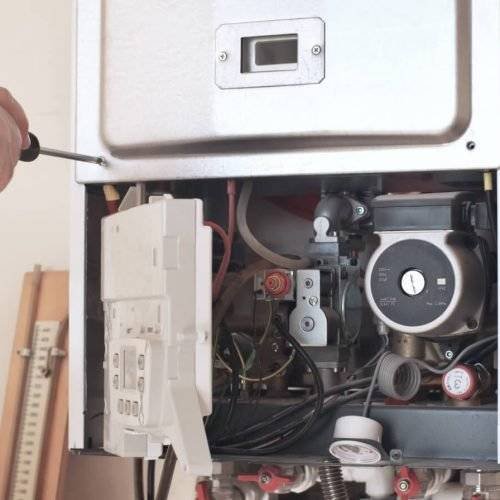
Who Are We?
Residential Furnace Installations & Repairs
At Furnace Pros Plus, we are Edmonton’s premier destination for all your residential heating system installations. With a dedication to excellence and a passion for ensuring your indoor convenience, we have become reputable name in the heating & cooling market.
Got a heating system emergency situation? Contact us 24/7 at (587) 409-5683
For many years, we have committed ourselves to offering top-notch heating system installations, tune-ups, and repairs to homeowners in Edmonton. Our team of extremely competent technicians boasts detailed experience and understanding in handling a wide range of heating systems, making us the go-to specialists in Alberta.
Relating to heating system services, we take pride in offering efficient and reputable services, customizing our solutions to your specific requirements. If you require a new heating unit for your residence, our team will guarantee a seamless installation that guarantees your area remains comfy and warm.
Regular maintenance is essential to the longevity and performance of your heating unit, and we offer in-depth tune-up techniques to keep your system running smoothly. Our dedicated experts conduct detailed assessments, identifying and handling any possible issues without delay.
In times of unexpected breakdowns, our swift and efficient repair work services are here to rescue you from the cold. We understand the seriousness of heating emergencies and are easily available to provide immediate assistance.
At Furnace Pros Plus, we are more than just a heating company; we are your partners in producing a comfortable and warm environment for your house in Edmonton. Trust us for exceptional service, quality workmanship, and a dedication to your complete complete satisfaction. Your comfort is our concern, and we eagerly anticipate serving you.
How can we help you?
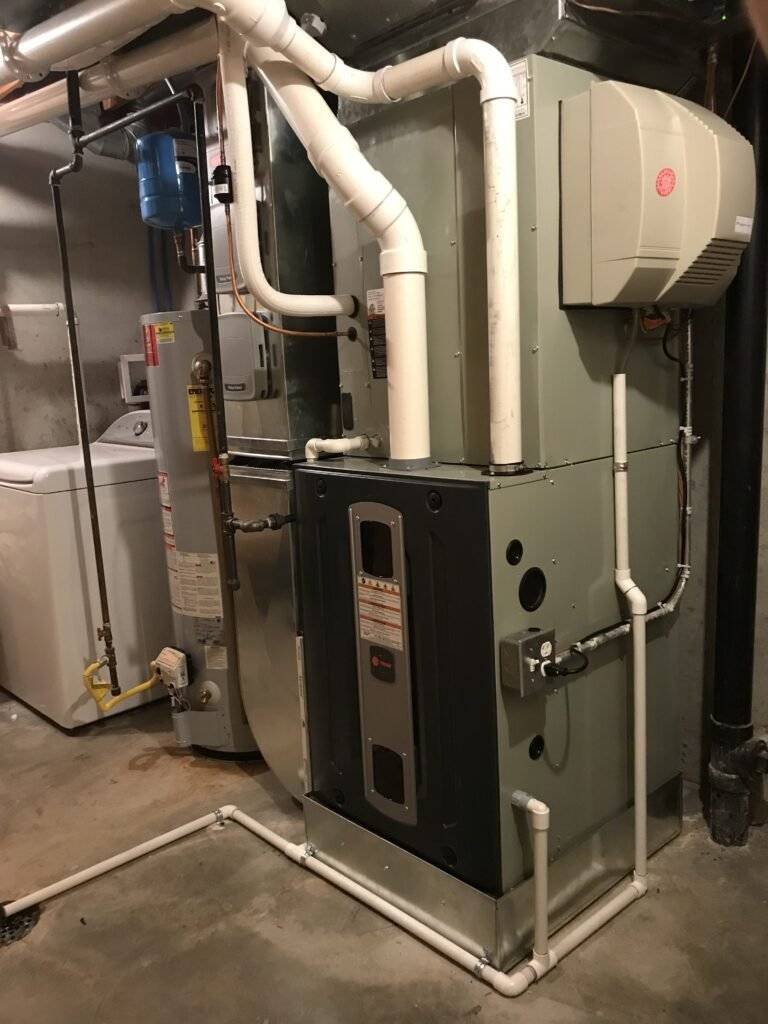
Understanding the Cost of Installing a New Furnace
Introduction
A functioning heating system is necessary when it pertains to keeping a comfortable and warm home during the chillier months. However, there comes a time when setting up a new heating system is inescapable.
Understanding the costs associated with this procedure is essential for property owners to strategy and spending plan appropriately. This detailed guide explores the numerous factors influencing the expense of setting up a new heating system.
Aspects Influencing Furnace Installation Costs
Kind of Heating system:
- Gas Furnaces: Popular for their efficiency, they usually cost more upfront but use lower operating expense.
- Electric Furnaces: They are less costly than gas heaters. However, electric designs tend to have higher functional costs due to electrical energy rates.
- Oil Heating systems: These are less typical and can be more expensive due to the expense of oil.
Furnace Size and Capacity
- Square Footage: The size of your home directly affects the capability required for the heating system.
- BTU Ranking: Higher BTU rankings equate to more powerful heaters, which can increase the expense.
Performance Scores
Annual Fuel Utilization Performance (AFUE):
Higher AFUE rankings mean much better efficiency but also featured a greater cost.
Brand name and Quality
Top-tier brand names often command higher rates due to their credibility for quality and longevity.
Installation Complexity
- Existing System: Updating from an old system may need extra work and expense.
- Ductwork: The condition and design of existing ductwork can impact setup intricacy.
- Availability: Hard access to the setup website can increase labour costs.
Labour Costs
Labour costs differ by area. In addition, the intricacy of the setup can influence labour costs.
Extra Costs to Think About
- Permits: Some localities need permits for heating system setup.
- Inspections: City laws may need post-installation examinations for safety compliance.
- Thermostats: Updating to a wise thermostat can sustain extra costs.
Typical Cost of Furnace Replacement
While rates can differ extensively based upon the factors pointed out above, here are some typical expense ranges for heating system setup:
- Gas Heating systems: $2,000 to $5,000.
- Electric Furnaces: $1,000 to $2,500.
- Oil Heating systems: $2,500 to $6,000.
These are rough price quotes and can differ based upon particular home requirements.
Cost-Saving Tips.
Research study and Compare.
Acquire multiple quotes from various professionals to guarantee competitive prices.
Seek Rebates and Incentives.
Look for energy efficiency rebates used by energy business or government programs.
Think About Long-Term Cost Savings.
Buying a more efficient heating system can reduce energy expenses with time.
Conclusion
Installing a new heating system is a significant investment, and understanding the costs included is necessary for any house owner. By thinking about the kind of heating system, setup intricacy, labour costs, and extra expenses, property owners can much better prepare for this needed upgrade. Remember to look for multiple quotes, explore offered rebates, and think about long-term energy cost savings when deciding.
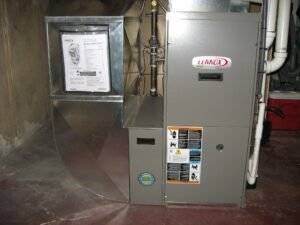
The Right Size Furnace for Your Home: A Comprehensive Overview
Introduction
Picking the best size heating system for your home is essential for guaranteeing efficient heating and convenience during the chillier months. A heater that’s too small won’t keep your house warm, while one that’s too big can cause unneeded energy intake and uneven heating. This guide will assist you identify the perfect heating system size for your home.
Understanding Furnace Sizing: BTU and Performance
We determine the size of a heating system in British Thermal Units (BTU). One BTU is the energy required to raise the temperature of one pound of water by one degree Fahrenheit. When selecting a heating system, 2 crucial factors contribute: the BTU ranking, showing the heating system’s heating capability, and its efficiency ranking, measured in Annual Fuel Utilization Performance (AFUE).
Computing Your Home’s Heating Needs
You must calculate your home’s heating needs to identify the right heating system size. The computation thinks about factors like square video, environment zone, insulation quality, window type, and house design. Usually, you require approximately 30-60 BTUs per square foot. However, this differs based upon your home’s particular attributes.
Climate Zone and Its Effect On Furnace Size
Your geographic location significantly influences the heating system size needed. Homes in chillier regions, such as Edmonton, need more BTUs per square foot than those in milder climates. Seek advice from a heating expert for particular recommendations.
The Role of Home Insulation in Furnace Sizing
Excellent insulation minimizes the amount of heat loss, indicating you can choose a smaller heating system. Examine your home’s insulation in the walls, attic, and windows. Updating insulation can be a cost-effective way to lower heating needs.
Considerations for Different Kinds Of Furnaces
There are numerous types of heaters, like gas, electric, and oil. Each type has distinct sizing factors to consider. Gas heaters are common and efficient, electric heaters are more uncomplicated and more secure but often more expensive to operate, and professionals install oil heaters where natural gas isn’t offered.
Value of Expert A/c Evaluation
An expert a/c evaluation is indispensable. Specialists think about all variables, including ductwork and home design, to recommend the optimum heating system size. They can perform a Manual J computation, the market requirement for determining heating and cooling loads.
Energy Performance and Cost-Effectiveness
Picking a heating system with a high AFUE ranking is essential for energy efficiency and expense savings. Modern heaters have AFUE rankings in between 80% and 98%, showing the percentage of fuel converted into heating. While high-efficiency heaters are more expensive upfront, they can cause substantial cost savings in the long run.
Addressing Typical Misconceptions About Furnace Sizing
A common misunderstanding is that a larger heating system is always much better. However, a large heating system can cause brief biking, where the heating system regularly turns on and off, lowering efficiency and life expectancy. On the other hand, an undersized heating system has a hard time to warm your home properly.
Long-Term Advantages of the Right-Sized Heating system
Picking the right-sized heating system has long-term advantages, including consistent convenience, lower energy expenses, lowered carbon footprint, and fewer upkeep issues. It’s a balance in between upfront costs and long-term cost savings.
Summary: Making an Informed Choice
Picking the best size heating system is a decision that affects your home’s convenience and energy efficiency for several years to come. By understanding the basics of heating system sizing and seeking professional guidance, you can make an informed decision that ensures optimum heating for your home.
Remember, the key to an effective and comfy home lies in selecting the best heating system and regular upkeep and thinking about other factors like insulation and environment. With this detailed guide, you are fully equipped to pick the perfect heating system for your home, offering heat and convenience for many winters.
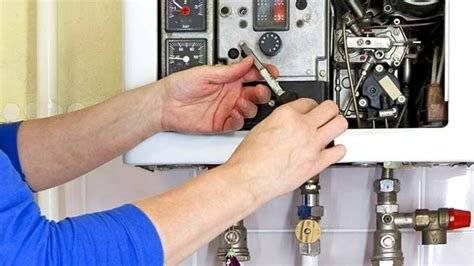
Replace or Repair Furnace: A Far-reaching Overview
Introduction
Deciding whether to change or repair your heating system is a significant decision for any house owner. The choice affects your immediate convenience and safety and has long-term financial implications. This detailed guide will explore numerous aspects to think about, assisting you make a notified decision.
Understanding Your Heating system
Life expectancy and Types
Heating systems usually have a life expectancy of 15-20 years. The two main types are gas and electric, each with various upkeep and functional costs.
Indications of Problems
Typical indications that your heating system may require attention include uncommon sounds, inconsistent heating, and increased energy expenses.
When to Think About Repairing Your Furnace
Repair work is often the best choice for small issues or heaters that are reasonably brand-new and still under warranty.
Cost-Effectiveness
Repairing can be more economical for small issues. However, regular repairs might show a deeper issue.
Ecological Impact
Repairs often have a lower ecological impact than changing the entire system.
When Replacement is the Very Best Choice
You must think about replacement if your heating system is near the end of its life expectancy, repairs are ending up being increasingly expensive, or if it could be more energy efficient.
Long-lasting Cost Cost Savings
While the preliminary expense is higher, a new heating system can be more energy-efficient, saving you cash on energy expenses.
Technological Advancements
Newer designs include innovative innovation, such as smart thermostats, which use much better temperature level control and efficiency.
Weighing Your Options
Cost Analysis
Compare the expense of repairs with time versus the one-time expenditure of a new heating system.
Energy Performance
Examine how your current heating system’s efficiency is impacting your energy expenses.
Home Value
Consider how a new heating system might increase the worth of your home, particularly if you plan to offer in the future.
Professional Guidance
Looking For Professional Opinion
Seek advice from heating and cooling experts to assess the state of your current heating system and get price quotes for repair and replacement.
Value of Regular Upkeep
Regular upkeep can extend the life of your heating system, whether you choose to repair or change it.
Summary
In conclusion, deciding to repair or change your heating system depends on numerous factors, including age, condition, expense, and energy efficiency. By thinking about these factors and seeking professional advice, you can make a decision that ensures convenience, safety, and financial prudence for your home.
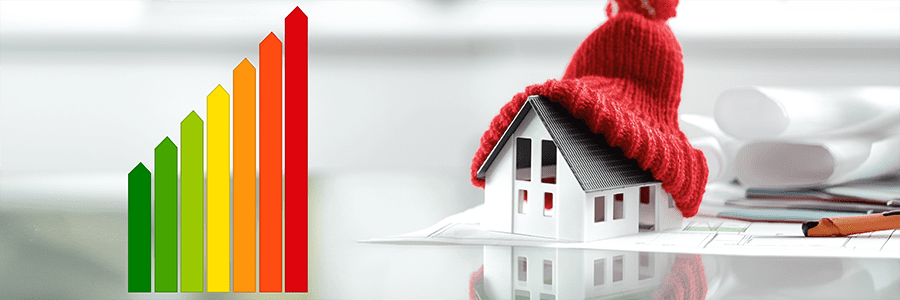
What Season is the Cheapest to Change Your Furnace?
Will a Modern Energy-Efficient Furnace Lower Your House Insurance?
Introduction
Home upkeep can be a significant investment, particularly when it involves essential systems like heating. Among the most substantial costs property owners deal with is changing their heating system. However, timing this replacement can cause substantial cost savings. This article explores the best time of year to change your heating system, thinking about cost-effectiveness and practicality.
Understanding Furnace Replacements
The Requirement for Replacement
Before diving into timing, it’s important to understand why and when you must change your heating system. Typical signs include regular repairs, heating inefficiency, and the system’s age (usually beyond 15-20 years). Changing an out-of-date or malfunctioning heating system enhances heating efficiency and ensures safety and convenience during chillier months.
Aspects Influencing Furnace Prices
A number of factors impact heating system rates, including the kind of heating system, brand name, capability, and the intricacy of setup. Seasonal demand is another substantial element, often overlooked, yet it plays an important function in determining the expense.
Best Time for Replacement: Off-Season
Why Select Off-Season?
The off-season, primarily spring and early fall, is generally the most affordable to change a heating system. The demand for heating systems is lower during these periods than during the peak cold weather. Lower demand often results in more competitive prices from producers and installers.
Advantages of Off-Season Replacement
- Lower Costs: Reduced demand can cause discounts and more consumer negotiating power.
- Availability of Technicians: a/c technicians are less busy during these times, guaranteeing more versatile scheduling and quicker setup.
- Ample Time for Research study: The off-season offers property owners enough time to research various heating system designs and options without the pressure of immediate requirement.
Preparation Ahead
Using the off-season needs preparation. Prepare for the requirement for replacement and schedule it when the demand is low. This foresight saves cash and avoids the trouble of a heating system breaking down in the middle of winter.
Winter season: The Peak Season
Challenges of Winter Season Replacement
- Higher Prices: The demand for heating system setup and repair peaks during winter, leading to higher rates.
- Hectic Schedules: Finding a professional might be more tough, and you might have to wait longer for a visit.
- Emergency Replacements: If your heating system breaks down in winter, you might have to choose an immediate replacement, which leaves little space for expense comparison or negotiation.
Other Considerations
Energy Performance and Rebates
Buying energy-efficient designs might be more expensive upfront but can cause long-term cost savings. Likewise, watch out for rebates and tax credits used for energy-efficient home enhancements.
Value of Regular Upkeep
Regular upkeep can extend the life of your heating system, delaying the requirement for replacement. It’s a necessary element of home care that you must take note of.
Summary
Timing your heating system replacement can cause substantial cost savings. The off-season, particularly spring and early fall, is usually the most economical period for this investment. Preparation, thinking about energy efficiency, and keeping your current heating system can optimize expenses and guarantee a warm, comfy home.
Introduction
House owners often consider whether updating their home devices and systems can cause cost savings on their home insurance coverage premiums. One typical concern is whether setting up a new heating system reduces home insurance coverage costs. This article explores how a new heating system setup might affect your home insurance coverage, offering insights into insurance coverage, danger management, and possible cost savings.
Understanding House Insurance Premiums
Before diving into the specifics of heaters and insurance coverage, it’s essential to understand what factors influence home insurance coverage premiums. Insurance provider assess numerous factors, including:
- Property Age and Condition: Insurance Representatives see more recent homes with updated systems as lower dangers.
- Area: Geographical location and local environment can significantly impact insurance coverage rates.
- Safety Features: The presence of alarms, smoke alarm, and other safety gadgets can reduce premiums.
The Impact of a New Furnace on House Insurance
Installing a new heating system in your house can have numerous implications for your home insurance coverage:
- Reduced Risk of Fire and Gas Leakages: Modern heaters with innovative safety functions reduce dangers like fire or gas leakages. This danger decrease can be favourable in the eyes of insurance coverage providers.
- Improved Energy Performance: Newer heaters are often more energy-efficient, leading to lower energy costs and a lowered ecological footprint, indirectly affecting insurance coverage factors to consider.
- Boosted Home Value: Updating to a new heating system can increase your home’s market price, which might impact the coverage you require.
Prospective Insurance Discount Rates
Some insurance provider use discounts for home enhancements that lower danger. These might include:
- Protective Device Discounts: You might receive a discount rate if your brand-new heating system includes innovative safety functions.
- Green House Discounts: Some insurance companies supply unique discounts for setting up energy-efficient home appliances.
Paperwork and Appraisal
To leverage a new heating system setup for insurance coverage advantages, think about the following:
- Professional Installation: Make sure a licensed professional installs your heating system, which can be a requirement for insurance coverage advantages.
- Keep Records: Preserve all receipts and documents for the heating system purchase and setup.
- Notify Your Insurer: Notify your insurance provider about the upgrade. They may need an assessment or extra documents.
Considerations Before Updating
While a new heating system can use advantages, think about the following:
- Cost vs. Benefit Analysis: Evaluate if the long-term cost savings on insurance coverage and energy expenses justify the preliminary expense of a new heating system.
- Insurance Policy Review: Speak to your insurance coverage agent to understand how a new heating system might specifically affect your policy.
Summary
Updating to a new heating system can reduce your home insurance coverage premiums by lowering danger and enhancing your home’s safety and efficiency. However, the impact differs based upon specific insurance coverage and the particular functions of the heating system. It’s recommended to seek advice from your insurance coverage company to understand the complete advantages and implications of a new heating system setup.
Frequently asked questions
Q: Just how much can I minimize my home insurance coverage by setting up a new heating system?
A: Savings differ based upon the insurance coverage company and the particular functions of the brand-new heating system. Seek advice from your insurance coverage agent for in-depth info.
Q: Are there any particular types of heaters that are more favourable for insurance coverage discounts?
A: Heating systems with innovative safety functions, high energy efficiency rankings, and those that satisfy particular ecological standards are often more favourable.
What Our Customers Say About Us



How to Prepare for a Heater Installation
Installing a new heating system in your house is a significant investment and a necessary upgrade to your home. It improves the convenience of your home and enhances energy efficiency. Appropriate setup preparation is essential to guarantee the setup procedure is smooth and stress-free. This article will assist you through the needed actions to prepare for a heating system setup.
Understanding Your Heating Needs
Evaluating Your Area: The first step is to assess the size of your space and understand the heating requirements. A too-large or too-small heating system for your home can cause inefficiency and higher energy costs. Consulting with a heating professional to identify the best heating system size is essential.
Picking the Right Furnace: There are numerous heaters, including gas, electric, and oil. Each has benefits and drawbacks; the choice depends on your location, spending plan, and personal choice. Research study and seek advice from professionals to make a notified decision.
Pre-Installation Preparation
Picking a Qualified Installer: We can not overemphasize the significance of selecting a qualified and experienced installer. Look for experts with good evaluations and proper accreditation. They will guarantee a proper setup and guide you through the procedure.
Cleaning the Area: Make sure the area where you plan to install the heating system is clear of any mess. A tidy area supplies easy access to the setup team and accelerate the procedure. Get rid of any important or delicate products from the vicinity to prevent unintentional damage.
Preparing for Downtime: Depending on the intricacy of the setup, your heater may be down for a few hours to a day. Plan appropriately, particularly if the setup is during chillier months.
During Installation
Access to Your Home: Make sure the installers have easy access to your home, which includes guaranteeing that parking is offered and a clear course to the heating system location.
Communication: Stay offered to respond to any questions the installers might have. Clear interaction can assist fix any issues rapidly and guarantee your setup goes as prepared.
Post-Installation Checks
Examine the Setup: Once the setup is total, examine the work with the installer. Make sure that the setup is total which the area is clean.
Understanding the System: Have the installer explain the functioning of the brand-new heating system, including how to change filters and the basic troubleshooting actions.
Service warranty and Paperwork: Guarantee you receive all needed documents, including warranty info and running manuals. Keep these documents in a safe place for future reference.
Conclusion
Preparing for a heating system setup involves understanding your heating needs, selecting the best heating system, and selecting a qualified installer. By following these actions, you can guarantee a problem-free setup procedure and delight in the convenience and efficiency of your brand-new heater for several years to come. Remember, a little preparation goes a long way in guaranteeing a smooth and effective heating system setup.
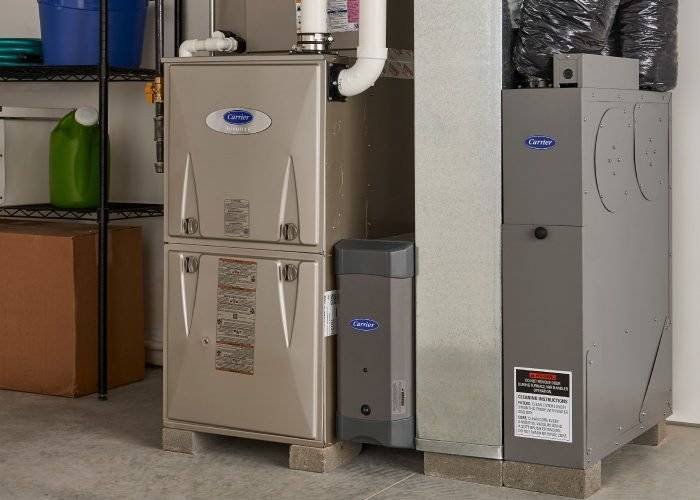
Our Work
